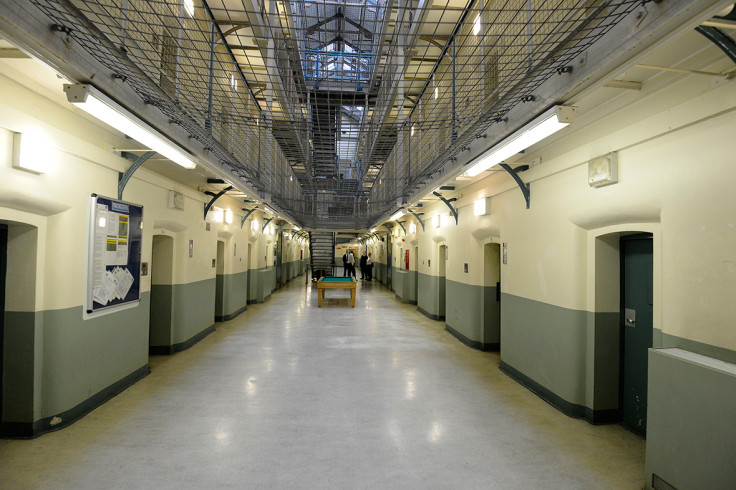New rehabilitative scheme intends to keep women from crime in the UK
The Ministry of Justice has invested £15 million into organisations that tackle drug abuse and rehabilitation for women in the UK. The scheme will also reduce the £18 billion overall cost of reoffending for the taxpayer.

The Ministry of Justice (MoJ) has invested £15 million into 40 women's charities and centres in the UK, along with four Police and Crime Commissioners. The funding will provide specialist support to women who commit lower-level offences.
This scheme, which is a key factor of the Government's Female Offender Strategy, intends to tackle the root causes of female offending and reduce the number of women who end up in prison.
The organisations that have been awarded part of the fund help exposed women recover from substance abuse, move away from abusive relationships, get stable accommodation, and find employment.
It has been predicted that the scheme will also reduce the £18 billion overall cost of reoffending for the taxpayer.
Brighton Women's Centre has been awarded £761,280, which will be put towards helping vulnerable women through counselling and psychotherapy, as well as childcare services.
The Director at Brighton Women's Centre, Lisa Dando, told reporters: "I am delighted that we have been awarded funding from the MoJ to support women living with multiple disadvantages to lead happier and fulfilling lives."
In Yorkshire, the Together Women Project will receive £621,309 for their work that offers one-to-one trauma support to women serving community sentences.
The Nelson Trust, which provides women with addiction treatment programmes, has been awarded £1,164,915. This donation will assist with helping vulnerable women achieve long-lasting sobriety.
John Trolan, CEO of The Nelson Trust, declared: "This welcome funding enables us to support women with multiple vulnerabilities many of whom end up in the justice system because of exploitation by others."
Damian Hinds, the Prisons and Probation Minister said: "These community organisations play a key role in our work to cut crime and improve support for some of society's most vulnerable women."
Women’s needs within the criminal justice system are different and require their own approach.
— HMPPS (@hmpps) March 8, 2022
Watch the video below to find out how Pia Sinha, Director of Women in HMPPS, is bringing the ambition laid out in the Female Offender Strategy to life ⬇️#IWD22 pic.twitter.com/uBjMKbo4hr
Joe Chapman, who worked as a Councillor to female offenders in Holloway and Cookham Wood Prison, spoke to me about the lack of rehabilitation in women's prisons, compared to that of men's prisons in the UK.
"There is plenty of education, gym time, cookery, hair salons... but when it comes to actually digging down to the surface for why they're there and what they are going to do for the future, they don't get much of that," he said.
It was reported that more than three-fifths of women have experienced domestic violence, together with around one-third of female felons having a history of drug abuse.
John Trolan, CEO of The Nelson Trust, revealed: "58 per cent of women report committing crimes to support the drug habit of others as opposed to 27 per cent of men."
Stuart Andrew, the former Minister of State for Justice, stated: "Female offenders are often driven into crime by poor mental health, drug addiction or abuse."
Damian Hinds, who visited Brighton Women's Centre on 25 May, also recalled: "We know that female offenders often turn to crime because of poor mental health or drug abuse so it is absolutely vital we address those underlying issues to stop their offending."
Dr Amanda Brown, the author of 'The Prison Doctor', spoke about her experience with inmates in HMP Bronzefield. She said: "A high percentage of women in prison were actually victims, that was perhaps the most striking thing about female prisons."
"The crimes that they were being punished for committing were often a direct result of the abuse they'd suffered," she added.
The Female Offender Strategy Plan 2022-25 has introduced training for all prison staff, to support the needs of women. This includes helping women to address past traumatic experiences & enabling mums to continue playing an active role in their child’s life.#MaternalMentalHealth pic.twitter.com/6teHx2tVlG
— Hibiscus Initiatives (@hibiscuscharity) May 26, 2023
Since 2018, nearly £55 million has been invested into rehabilitating female offenders, and helping vulnerable women. New specialist staff has also been recruited, to provide pregnant women and mothers in prison with additional support.
The Governments Female Offender Strategy has already seen the female prison population fall by more than 18 per cent. In 2012, 4,123 women were incarcerated, whereas, in May 2023, there are currently 3,362 women behind bars.
© Copyright IBTimes 2025. All rights reserved.






















